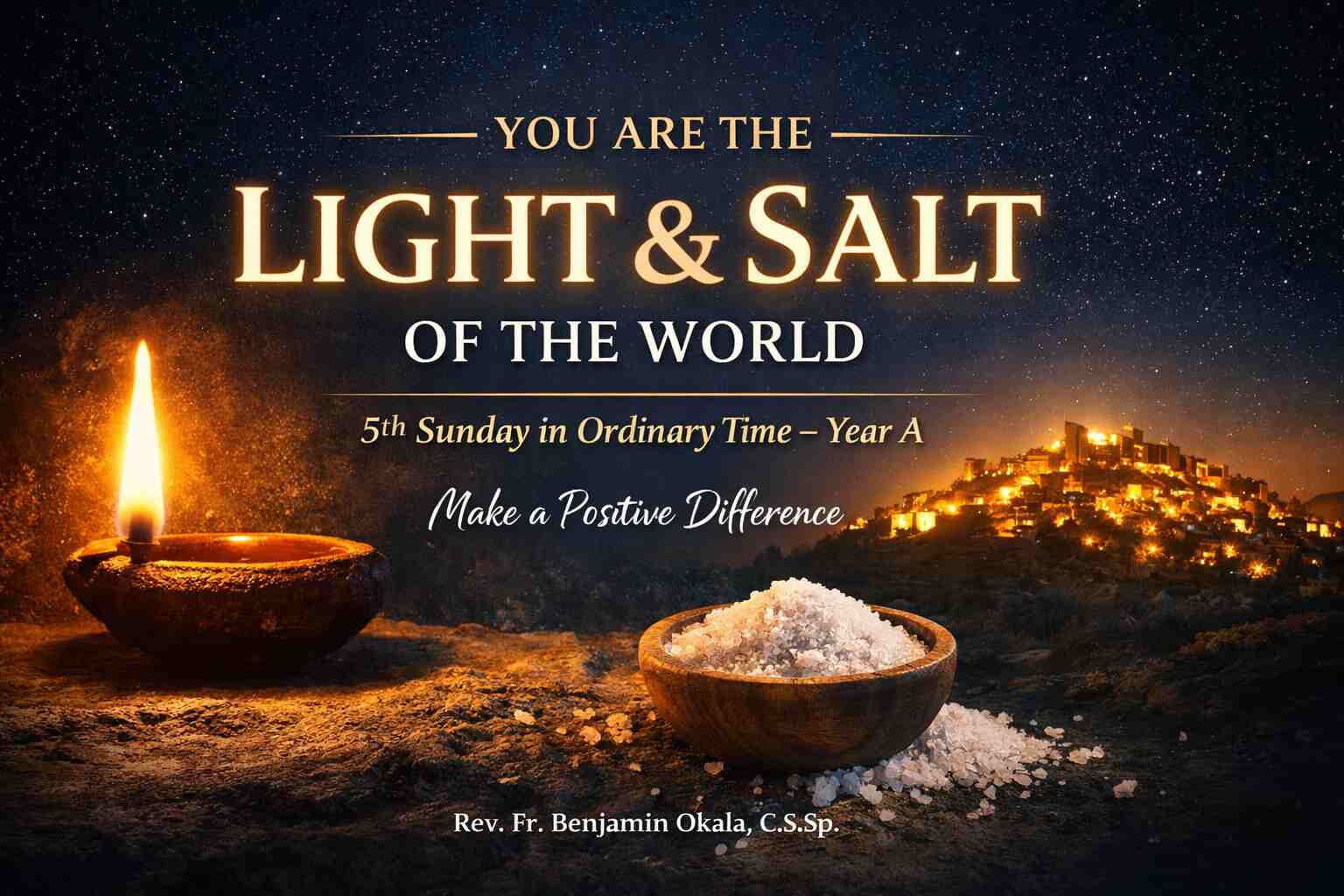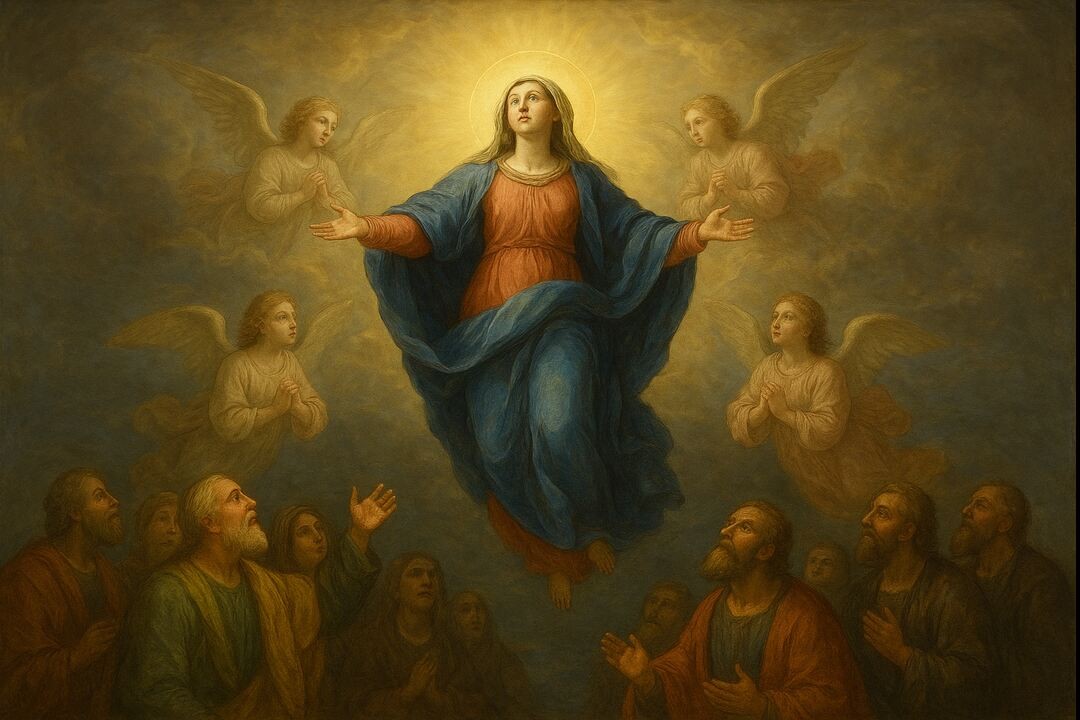HOMILY OF 2ND SUNDAY READINGS, YEAR A
First: Isaiah 49: 3, 5-6; Second: 1 Corinthians 1:1-3; Gospel: John 1:29-34
The Lamb: A Symbol of Innocence and Sacrifice
The lamb is a tender animal most cherished by many people, perhaps because of its innocence, meekness, humility, and obedience. Moreover, despite these good characteristic features, instead of being preserved, rather it was the preferred animal sacrifice in biblical times, especially the blemished one.
Of course, it was exactly what the Israelites slaughtered and smeared its blood on their doorposts during their Passover night in Egypt, which saved them from death (Exodus 12:11–13).
Isaiah’s Message of Perseverance and Redemption
Meanwhile, in this Sunday reading, precisely in the first reading, the Prophet Isaiah encouraged the Israelites, who were in exile, to persevere in their faith and trust in God, who would soon liberate them from Babylon and eventually send them the Messiah. This Messiah (the servant who seeks neither glory nor power) would humbly give perfect obedience to God and suffer severely to bring back humanity to God.
Hence, the Lord says: “It is too light a thing that you should be my servant to raise the children of Jacob and to restore the survivors of Israel; I will give you as a light to the nations so that my salvation may reach to the ends of the earth” (Isaiah 49:6).
Jesus Christ: The Quintessential Sacrificial Lamb
Certainly, this gives us a glimpse of the mission of the servant of God, who is called to selflessly, humbly, and obediently sacrifice His life, like a lamb, for the sake of others. For instance, some people, who possess the character of the lamb, may be innocent of any crime but often suffer or sacrifice their lives for others who may have committed the crime to save them. No wonder, most people with the above-mentioned characteristic features are always referred to as “sacrificial lambs.”
Embracing Jesus’s Sacrificial Love and Atonement
Undoubtedly, Jesus Christ is a quintessential “sacrificial lamb.” He was innocent, meek, humble, obedient, merciful, compassionate, etc. It is not surprising, therefore, that John the Baptist, in the Gospel of this Sunday readings, would refer to Him as “the Lamb of God, who takes away the sins of the world” (John 1:29). This is one of the most precious titles of Jesus Christ and has become woven into the language of devotion.
Our Responsibility: Appropriating Jesus’s Sacrificial Love
Yes, Jesus Christ was innocent, without committing any offense, yet He suffered severely and sacrificed His life with His precious blood to take away the sins of the world and save humanity from eternal death (1 Peter 2:22; Galatians 1:4). That is, the sins committed by Adam and Eve, by those living in His own time, and by those who would live on this earth until the end of time. This implies that our sins have already been taken away in advance by Jesus Christ, even before we were born. What a sacrificial love!
Continuing the Mission: Called to Be Saints
However, our responsibility now is to appropriate this salvation Jesus Christ won for us into our lives by reaching out and taking possession of it. If not, it will not become our own. So, how do we reach out and take the salvation Jesus Christ Has won for us?
The Humility of John the Baptist
In the second reading, St. Paul reminds us of our calling here on earth, that is, “to be saints.” So, as Christians, our mission here on earth is essentially a continuation of the mission of Jesus Christ, whom John the Baptist calls the “Lamb of God.” In other words, it is a replication of the life of Christ (sacrificial love), who sacrificed Himself for others so that they might have life in its fullness.
Bearing Witness: Decreasing Selfishness, Increasing Christ
Besides, it may not necessarily be to offer ourselves to be killed like Jesus Christ or like the martyrs (saints) but to selflessly, humbly, and obediently sacrifice our lives to God and humanity through love, charity, forgiveness, justice, fairness, compassion, etc. (Romans 12:1-2). Only then can we appropriate the sacrifice of the “innocent Lamb of God” to become our salvation.
Imitating the Lamb of God: Characteristics of Sacrifice
Another interesting point to note in today’s Sunday readings, especially from the Gospel, is the humility of John the Baptist. He humbly admitted that he did not know Jesus Christ initially but was able to recognize Him through the inspiration of the Holy Spirit.
Moreover, many people thought that he was himself the Messiah, but he vehemently denied this and said he was not even worthy to undo the strap of Christ’s sandals (John 1:27). “He must increase, but I must decrease” (illum oportet crescere, me autem minui) (John 3:30).
Eternal Life Through Imitating Christ’s Sacrificial Love
Unequivocally, John the Baptist truly bore witness to Jesus Christ. He understood his mission, which was simply to be the forerunner of Jesus Christ and to point Him out to the world as the Messiah, the “servant of God” of whom the prophet Isaiah spoke. Hence, we need to bear authentic witness to Christ by being more deeply humble like John the Baptist so that our selfishness decreases and Christ can grow in us.
Conclusion
In sum, as we rightly explained in this Sunday’s readings, Jesus Christ was innocent, yet He offered Himself as a sacrificial lamb so that humanity would gain salvation. Hence, we are called to offer our lives to God as a living sacrifice and to become saints.
We can achieve this, by imitating the characteristic features of the Lamb of God in all ramifications, most especially His innocence, meekness, humility, obedience, mercy, compassion, etc., and living them out in our lives daily. When we do this by God’s will, then at the end of our lives here on earth, we will gain eternal life.
PRAYER:
May the Holy Spirit give you the grace to selflessly, humbly, and obediently sacrifice your life to God and humanity with love and sincerity, and to become a saint, through Jesus Christ, Our Lord, Amen.
Peace of Christ be with you…
Rev. Fr. Ben Okala, C.S.Sp.



